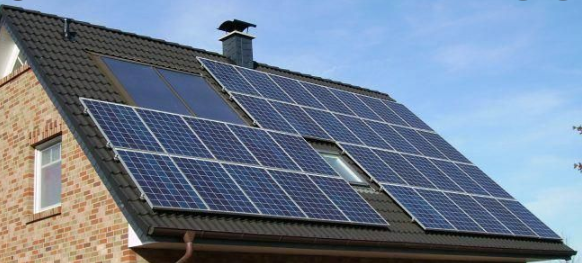5 Things to Know Before Installing Solar Panels on your Roof – Solar panels are installed to produce energy in an environment-friendly manner. More and more people are choosing this lifestyle for their homes and offices. These people like the idea of conserving energy and using sustainable materials that don’t add up to the greenhouse effect.
The environment is changing, and people are getting more aware of the repercussions and consequences of some of the things such as excessive plastic use, carbon footprint, etc. In the midst of this awareness, people are finally acknowledging the shift to solar panels.

Solar panels are not only great for the environment, but they have some other benefits too. Installing solar panels is an easy way to save money on your electric bill as you minimize your carbon footprint as well. However, for some people, solar panels have their advantages and disadvantages, both.
1. Are Solar Panels Great For Your Needs?
While solar panels have the reputation that they will definitely prove beneficial for you, these advantages are limited to some people.
Some people need more energy for their house, and it can become a little problematic if they install solar panels. The major benefit of solar panels is that they save your electricity bills.
However, if you don’t do proper research about your power needs, it can end up costing you more money than ever.
For more power, you will need to install more solar panels, which means that you will need to invest more in the whole procedure. If you install solar panels and later on find out that they are not fit to provide the necessary power, you will only regret your decision.
2. What Are The Costs Involved?
Of course, before you even think about getting the solar panels, you need to do your research on all the costs involved.
A lot of people go aboard with the idea because they are under the impression that it is cost-effective. While it is true that solar panels save money, that may not be the case for you.
Every country has its own prices and laws, and that means in your area, the costs could vary. The best way to get this matter cleared out is by getting a professional provider that has great user ratings and reviews.
Your provider will be able to provide you with all the necessary information. If you think that it is not your cup of tea, you can back off in the initial stage.
Some states offer users funds to install solar panels. For example, people living in Illinois may have this benefit. If you are living in Illinois, it is best to check out headlinesolar.com to go solar at reasonable prices.
3. Is Your Roof The Right Place To Install Solar Panels?
Some roofs are better suited for solar panels than others. The first thing you need to ask yourself is whether you are going to upgrade your roof in the next few years or not?
It is better to get all the pending upgrades out of the way beforehand. Once your solar panels are installed, it can get expensive to make any further changes.
On the other hand, if you think a roof update is in the future, it is better not to install the panels. It is very difficult to get them off later on.
Another thing you should think about is how much shade your roof gets. Is it at the right angle? The right angle means that your roof needs to get maximum sunlight as that is the primary source of energy in this case.
If your roof is not at the right angle or does not have enough space, you will have to install the panels in your backyard, and that won’t be as productive.
After considering all the factors related to your roof, if you think that installing solar panels on your roof is not a good idea, you can invest in community solar.
You would get a discount on your electricity bill this way even if you live in a place that is not very solar-friendly.
4. Is Your Geographic Location Appropriate?
We have already touched on the importance of sunlight in case of solar panels. In the case of solar panels, sunlight is the most important factor, and its presence and absence can affect your solar panels’ performance.
It is advised that you install the solar panels by keeping in mind the weather in your area. Is it mostly sunny or cloudy? Some regions generally have short days or rainy/cloudy days most of the time.
Solar panels create energy by converting solar energy, which means that its performance is already cut half as it won’t work during the night. It is imperative that it gets the maximum amount of sunlight during the day so it can perform well and give enough energy.
5. What Kind Of Solar Should You Go For?
There are two dominant solar technologies that you can pick from. These are photovoltaic and thermal. Photovoltaic uses arrays of cells and then turns sunlight into electricity.
In the case of thermal, the panels use sunlight to heat water for use inside. The choice basically depends on your needs. If your home requires a lot of energy for heating, or it is expensive to heat fuel in your region, you should go for solar thermal investment.
However, with thermals, there is one drawback. Solar thermal is not very common for homes, so it might be difficult for you to find an installer that is qualified.







